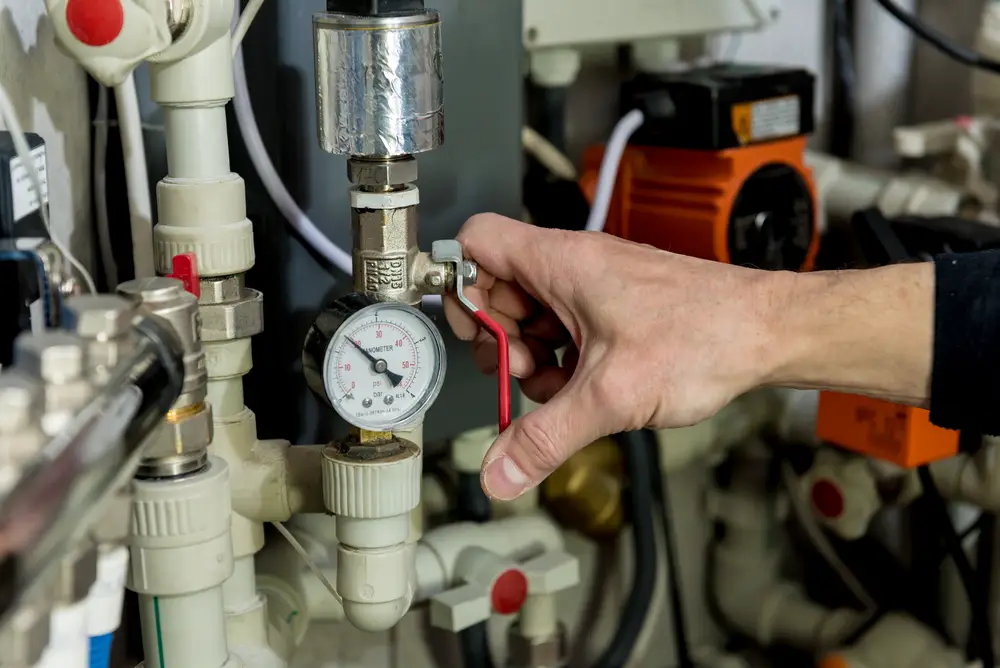Click here to get this post in PDF
Unvented hot water cylinders offer a reliable and efficient solution for providing ample hot water to your household or commercial building. To ensure optimal performance and longevity, regular maintenance is essential. This article will explore key maintenance practices for unvented cylinders, helping you maximize your hot water supply.
Understanding Unvented Cylinders
Before we go into the details of maintenance, it is important to understand how unvented cylinders work. These cylinders are subjected to higher pressures than vented cylinders, resulting in faster and more efficient hot water production. They typically utilise mains electricity and a dedicated pump to circulate the hot water throughout your home.
Regular Maintenance Tips
- Annual Maintenance: Schedule professional maintenance of your Unvented Cylinder at least once a year. A technician will check and clean various components such as the immersion heater, thermostat and pressure relief valve. They may also check for signs of leaks or corrosion.
- Check the Pressure Relief Valve: Regularly test your Pressure Relief Valve to ensure it is functioning properly. This valve is designed to release excess pressure if it gets too high, preventing potential safety hazards.
- Check the Expansion Tank: Check the expansion tank regularly to ensure it is in good condition and properly expanded. This vessel balances the expansion as the water heats up and prevents excessive pressure build-up.
- Monitor Water Temperature: Adjust the water temperature setting on the thermostat to your desired value. A slightly lower temperature can reduce energy consumption without sacrificing comfort.
- Repair Leaks Immediately: If you notice any leaks in the cylinder or its connections, repair them immediately. Leaks can cause water damage and safety hazards.
- Consider Water Treatment: In hard water areas, consider using a water softener or treatment system to prevent mineral buildup in the cylinder, which will help maintain efficiency and longevity.
Benefits of Unvented Cylinder Maintenance
Increased Efficiency: Regular maintenance can help your cylinder operate at its peak efficiency, providing you with ample hot water while minimizing energy consumption.
Reduced Costs: By optimizing your cylinder’s performance, you can lower your utility bills and save money over time.
Improved Safety: Proper maintenance can help identify and address potential safety hazards, such as leaks or corrosion, before they become serious problems.
Peace of Mind: Knowing that your hot water system is well-maintained can provide you with peace of mind and reduce stress.
Additional Tips
- Insulate Pipes: Insulating hot water pipes can help minimize heat loss and reduce energy consumption.
- Avoid Excessive Draw: While unvented cylinders are designed to handle multiple simultaneous draws, excessive hot water usage can strain the system.
- Replace Components as Needed: If any components, such as the immersion heater or thermostat, are showing signs of wear or failure, replace them promptly to avoid disruptions in your hot water supply.
- Check for Sediment Build-up: Over time, sediment can accumulate in the bottom of the cylinder, reducing its efficiency. If you notice a decrease in hot water performance, have the cylinder professionally cleaned to remove sediment.
- Consider a Solar Water Heating System: Combining solar power with your unvented cylinder can significantly reduce your energy consumption and environmental impact.
- Check for Corrosion: Regularly inspect the cylinder for signs of corrosion, especially around the joints and connections. If you notice any corrosion, have it repaired or replaced promptly.
Following these maintenance guidelines will ensure that your hot water tank operates efficiently and reliably, providing enough hot water to meet your household’s or building’s needs.
You may also like: Three Reasons Why You Should Upgrade Your Boiler Control System
Image source: DepositPhotos.com

